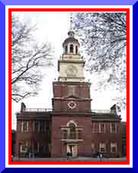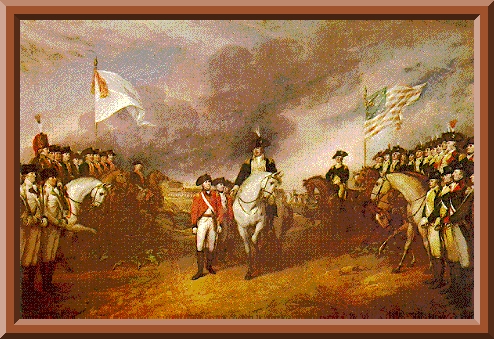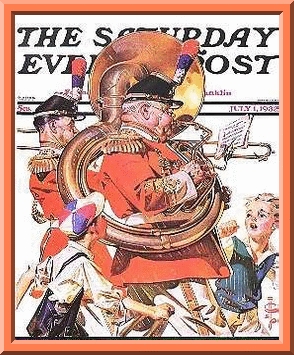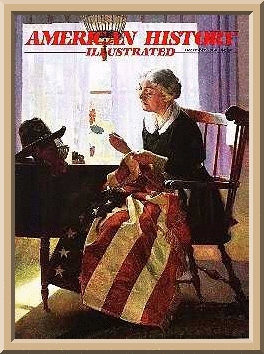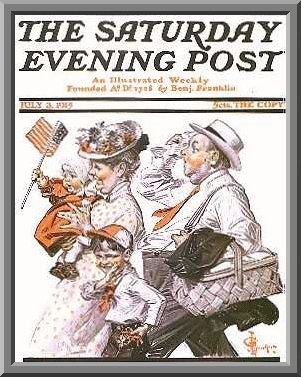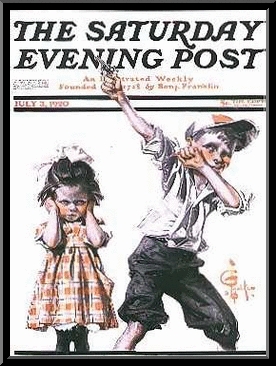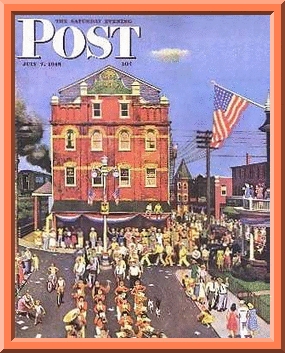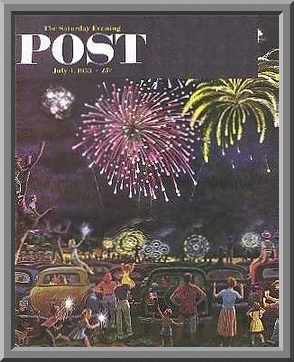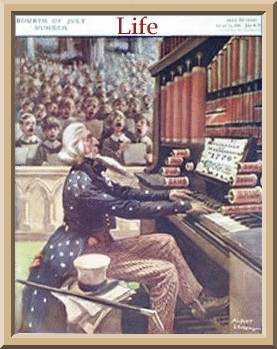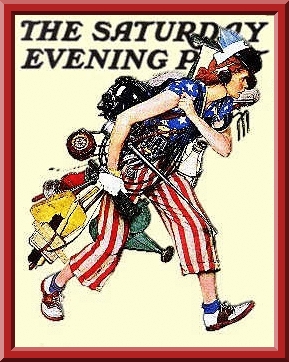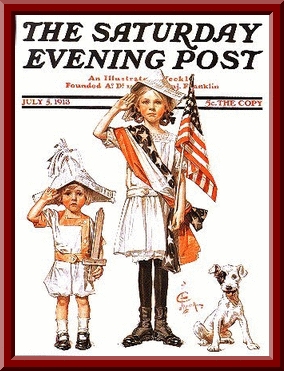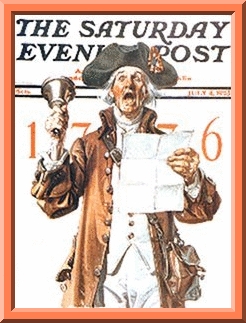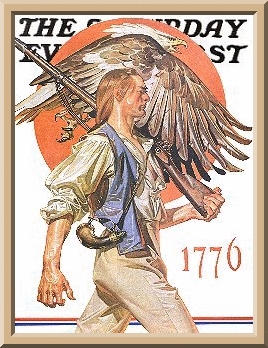

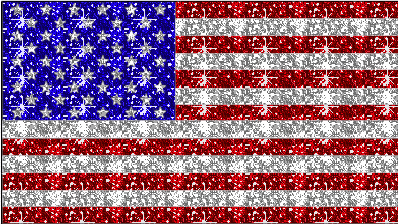
It's....... J U L Y 4th !
Quick! Get the hotdogs, get the burgers, the salads,
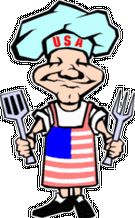 the corn, the soda, AND DON'T FORGET THE BEER! Fire up the bar-b-que, it's party time! It's a holiday, a time to find those "Big Sales" at the department stores, and a reason for picnics and parties. And why not? We
are a free nation, no mother country to tell us how to live!
the corn, the soda, AND DON'T FORGET THE BEER! Fire up the bar-b-que, it's party time! It's a holiday, a time to find those "Big Sales" at the department stores, and a reason for picnics and parties. And why not? We
are a free nation, no mother country to tell us how to live!
But, it wasn't always so. A little over 200 years ago, we were subservient to a king! How then did we become free? This is a bit of our history that I believe is not fully known to many of those who celebrate the day. This site is intended to give a brief understanding of that history.

| In the middle 1700's the United States was known as "The Colonies", loyal subjects of the British monarch, King George III. The original thirteen colonies were Connecticut, Delaware, Georgia, Maryland, Massachusetts, New Hampshire, New Jersey, New York, North Carolina, South Carolina, Pennsylvania, Rhode Island and Virginia. |
"No taxation without representation" was a rallying cry of the American Revolutionary War. During the years prior to and during the Revolution, advocates of American independence decried the fact that the American colonies were required to pay taxes to London, yet they had no representatives in Parliament. Therefore, the Americans felt that they were being forced to fund a government into which they had no input.
The phrase was originally coined by Rev. Jonathan Mayhew in a sermon at Old West Church in Boston. A slightly different version,
"Taxation without representation is tyranny", is attributed to James Otis.

| Flag of the 13 Colonies made by Betsy Ross | 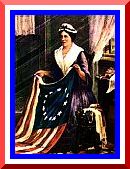 |
In 1773, Britain's East India Company was sitting on large stocks of tea that it could not sell in England. It was on the verge of bankruptcy. In an effort to save it, the government passed the Tea Act of 1773, which gave the company the right to export its merchandise directly to the colonies without paying any of the regular taxes that were imposed on the colonial merchants, who had traditionally served as the middlemen in such transactions. More important, however, the Tea Act revived American passions about the issue of taxation without representation.
 |
Samuel Adams |
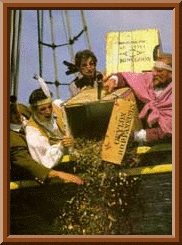 masquerading as Mohawk Indians, passed through a tremendous crowd of spectators, went aboard the three ships, broke open the tea chests, and heaved them into the harbor. As the electrifying news of the Boston "tea party" spread, other seaports followed the example and staged similar acts of resistance of their own.
masquerading as Mohawk Indians, passed through a tremendous crowd of spectators, went aboard the three ships, broke open the tea chests, and heaved them into the harbor. As the electrifying news of the Boston "tea party" spread, other seaports followed the example and staged similar acts of resistance of their own.

